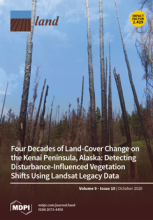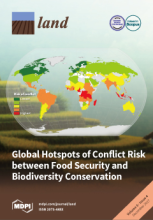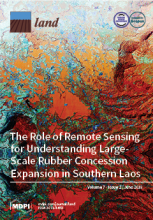/ library resources
Showing items 1 through 6 of 6.Amid climate change, biodiversity loss and food insecurity, there is the growing need to draw synergies between micro-scale environmental processes and practices, and macro-level ecosystem dynamics to facilitate conservation decision-making.
Climate change driven food insecurity has emerged as a topic of special concern in the Canadian Arctic. Inuit communities in this region rely heavily on subsistence; however, access to traditional food sources may have been compromised due to climate change.
Currently, the UK has a high self-sufficiency rate in barley production. This paper assessed the effects of projected climate and land use changes on feed barley production and, consequently, on meat supply in the UK from the 2030s to the 2050s.
Understanding the impact of commercial agriculture in the face of global change is critical to support strategies that ensure food security and alleviate poverty among households.
Biochar is one of the most affordable negative emission technologies (NET) at hand for future large-scale deployment of carbon dioxide removal (CDR), which is typically found essential to stabilizing global temperature rise at relatively low levels.
Botswana is a semi-arid, middle-income African country that imports 90 percent of its food. Despite its relative prosperity, Botswana also suffers from one of the highest measures of income inequality in the world, persistent poverty, and relatively high levels of food insecurity.
Land Library Search
Through our robust search engine, you can search for any item of the over 73,000 highly curated resources in the Land Library.
If you would like to find an overview of what is possible, feel free to peruse the Search Guide.






